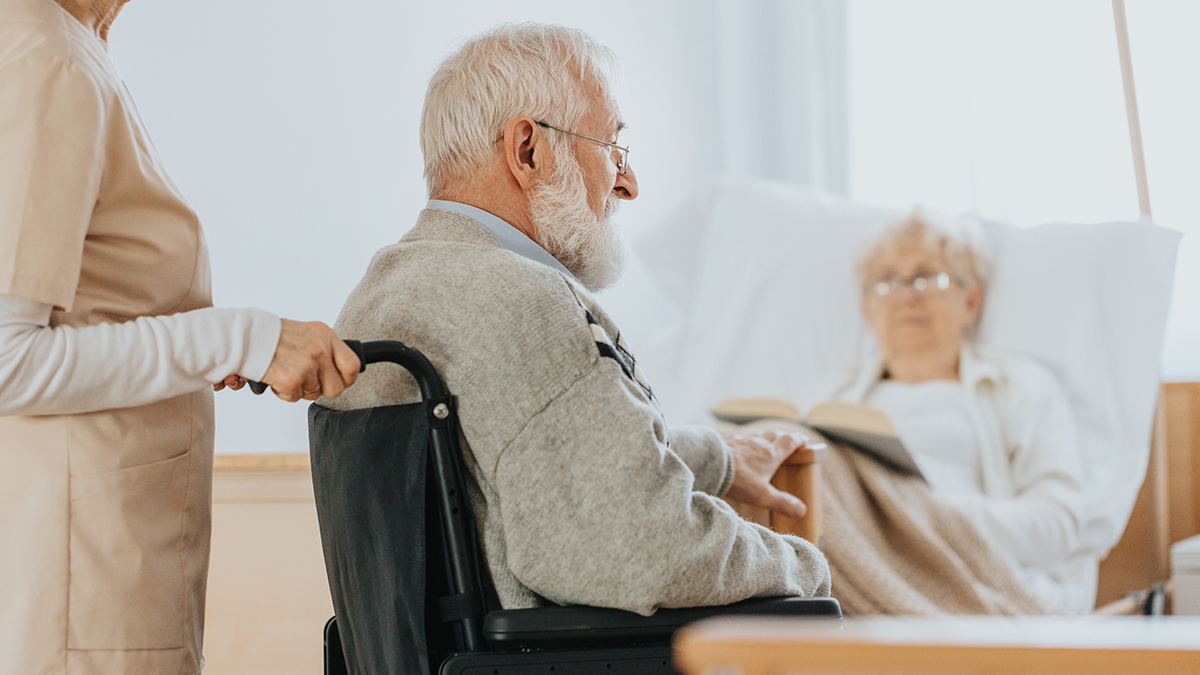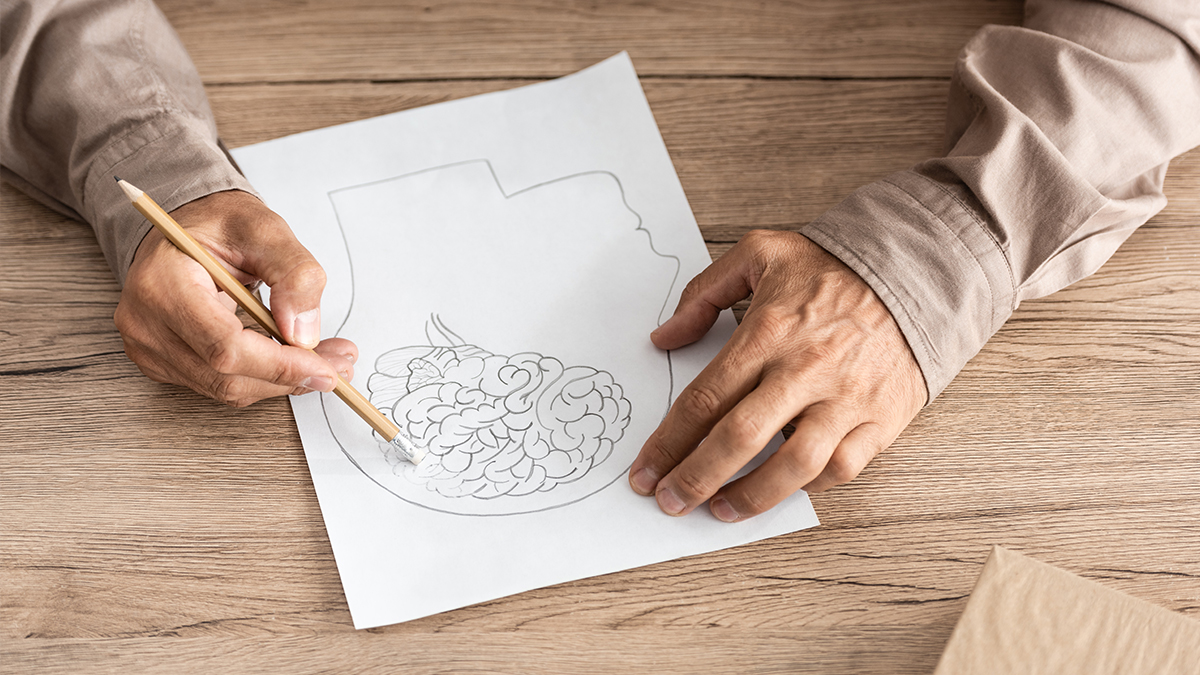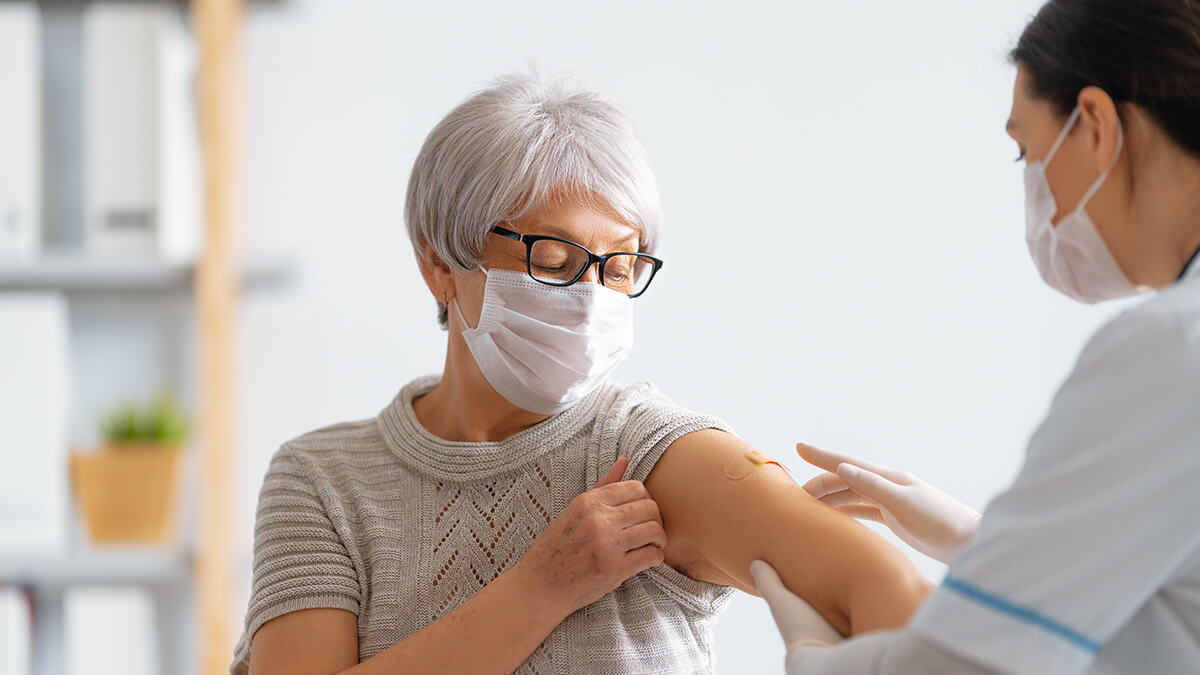Every 40 seconds, someone in the United States suffers from a stroke, making stroke one of the leading causes of death in the US and a cause of disability.1 Recovering from a stroke can be costly and stressful but knowing what Medicare covers after a stroke might help you.
What is a stroke?
A stroke or a “brain attack” happens when the blood supply to the brain is blocked or when a blood vessel in the brain bursts. When someone has a stroke, parts of the brain become damaged or die. A stroke can cause lasting brain damage, long-term disability, or even death.2
There are three main types of stroke:
Ischemic Stroke
87% of strokes are considered ischemic strokes. This happens when blood flow through the artery that supplies oxygen-rich blood to the brain becomes blocked. Blood clots are the common cause of blockages that lead to ischemic strokes.
Hemorrhagic Stroke
A hemorrhagic stroke happens when an artery in the brain leaks blood or breaks open. The leaked blood puts too much pressure on brain cells, which damages them. Some examples of conditions that can cause a hemorrhagic stroke are high blood pressure and aneurysms.
Transient Ischemic Attack (TIA) – “Mini-stroke”
A Transient Ischemic Attack (TIA) is also known as a “mini-stroke” because blood flow to the brain is blocked for only a short period of time. This is a warning sign of a future stroke and is still considered a medical emergency, just like a major stroke.
What are the signs someone is having a stroke?
During a stroke, every minute counts! Acting FAST can lessen the brain damage that stroke can cause and even save a life.
Here are some warning signs to know when someone is having a stroke:
- Numbness or weakness in the face, arm, or leg, especially on one side of the body
- Confusion, speech difficulty, or difficulty understanding speech
- Trouble seeing in one or both eyes
- Trouble walking, dizziness, loss of balance, or lack of coordination
- Severe headache with no known cause
If you or someone you know has any of these symptoms, call 9-1-1 right away. Remember, acting FAST can help stroke patients get the treatments they need.
What happens after a stroke?
After a stroke, you may need rehabilitation to help you recover. Some major side effects from a stroke include are:
- Paralysis or inability to move some parts of the body or feeling of weakness
- Having trouble with thinking, awareness, attention, learning, judgment, and memory
- Speech problems
- Trouble controlling or expressing emotions
- Numbness or strange sensations
- Pain in the hands and feet that worsens with movement and temperature changes
- Having trouble with chewing and swallowing
- Problems with bladder and bowel control
- Depression
What Medicare covers after a stroke
Medicare covers rehabilitation services to help you or your loved ones regain normal functions. These are what Medicare covers after a stroke.3
Medicare Part A
- Covers medical and rehabilitation services while in a hospital, rehabilitation center, or Skilled Nursing Facility (SNF)
Medicare Part B
- Help pay for medically necessary outpatient physical or occupational therapy
- Covers durable medical equipment if medically necessary (such as wheelchairs, walkers, lifts, or canes)
Medicare Part D
If you have Medicare Part D, your prescription drugs to help you recover from stroke may be covered by your plan.
Your pharmacist will get a coverage determination to know whether or not your insurance plan will pay for your drug and how much they will cover.
How to prevent stroke
80% of recurring strokes can be prevented through lifestyle changes and medical interventions. Here are some ways you can prevent stroke from occurring or re-occurring:
Making lifestyle changes based on your risk factors
Weight
A higher body mass index (BMI) is associated with a higher chance of first ischemic stroke. BMI is calculated based your weight and height. If you want to lower your BMI, a healthy diet and regular physical activity is your best friend.
Diet
Did you know that stroke cases are high right after the holiday season? That’s because a lot of people tend to enjoy the festivities so much that they forget about keeping a healthy diet. So, to lower your risk of stroke, it’s always best to follow a well-balanced diet. Talk to a nutritionist if you need help in managing your diet.
Physical Activity
We all know that exercise or physical activity has a lot of health benefits. Therefore, to lower your risk of stroke, add exercise to your daily routine.
Smoking and Alcohol use
Excessive cigarette smoking and alcohol consumption can increase your risk factor for stroke. So, if you want to lower your risk of stroke, you might want to think twice about lighting that cigarette stick or drinking more than a glass of wine everyday.
Other Medical Conditions
Some people may have underlying health conditions that increases their risk of having a stroke. It is important to have control over these conditions by maintaining healthy habits. Regularly meet with your physician, monitor your condition, and take advantage of tests and screening services that are covered by your health insurance plan.
Taking advantage of preventive services that Medicare covers
- Cardiovascular disease screening
- Cardiovascular disease (behavioral therapy)
- Alcohol misuse screening and counseling
- Diabetes screenings and self-management training
- Nutrition therapy services and Obesity screening and counseling
- Smoking and tobacco use cessation counseling
If you are at high risk for stroke, it is good to know how your Medicare coverage works and understand the potential costs should you suffer a stroke event. Speak with your plan provider or agent about coverage and costs associated with stroke recovery.
References:
1 Stroke Awareness Foundation. (n.d.). Stroke Facts & Statistics. https://www.strokeinfo.org/stroke-facts-statistics/
2 About Stroke. (n.d.). Stroke. https://www.cdc.gov/stroke/about.htm
3 Stroke recovery – Medicare can help. (n.d.). Blog. https://www.medicare.gov/blog/stroke-recovery-medicare-can-help







